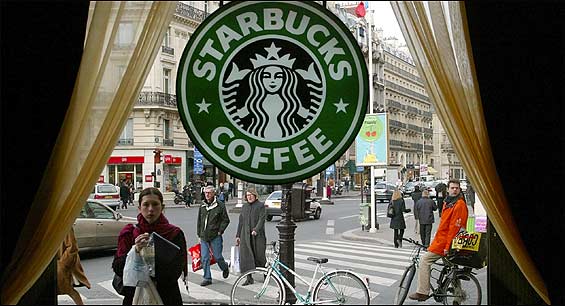"The fact is that the mainly private U.S. health care system spends far more than the mainly public health care systems of other advanced countries, but gets worse results. In 2001, we spent $4,887 on health care per capita, compared with $2,792 in Canada and $2,561 in France. Yet the U.S. does worse than either country by any measure of health care success you care to name - life expectancy, infant mortality, whatever.
In the US you pay more (dollars) for less (quantity and quality health care).
Here in France, when one of my kids gets an earache or catches the stomach flu, or my wife or I catch the flu, we call up a service,
SOS Medecins (SOS Doctors), that is freely available to anyone. They send over a doctor to my house, usually within an hour, although when there is a stomach flu epidemic going around we may wait a couple of hours. We've even had doctors over at the house within 15 minutes. My wife used this service one time on Christmas eve and had a doctor in little over an hour -- a doctor who had to drive 20 minutes to get to us out in the country.
Imagine how much you pay for this service! Must be expensive! Sure, it's more expensive than a visit to a doctor's office, I'll grant you that. For a visit during the week and during the day, I pay 30 euros (about US$36). For a visit during the weekend or at night, I may have to pay as much as 45 euros (US$54). And, by the way, almost all of that is refunded to me through state-sponsored social security and work-related
mutual insurance. (And, by the way, the mutual insurance deals don't exclude anyone or any condition -- they have to accept all employees and all prior conditions.)
Compare and contrast that to the situation in the US. When over for vacation last July, my son had a bad cough that wouldn't go away. We had a hard time finding a doctor that would take him since the family doctor was on vacation himself and other pediatricians weren't "taking new patients". My folks talked to a neighbor who has a pediatrician friend and we managed to get an appointment -- perhaps because I mentioned to the receptionist that the doctor was a friend of a neighbor, although I can't be sure.
One thing that stuck in my mind was the receptionist's repeated question -- "Do you have insurance?" I answered that we were from France, insured in France, probably over-insured while on vacation, but that at any rate we were planning on paying cash for the visit. The reaction to my response was another query of "Do you have insurance?" to which I simply responded "yes". That seemed to do the trick.
I still don't know under what circumstances that this question has an impact. Is this a screening question in order to avoid patients who potentially cannot pay? Do this somehow change the level of care that the person may receive? I am very uneasy with this question -- an uneasiness that is largely echoed by my French compatriots when I relate this scene to them. In France, like in much of Europe, affordable health-care is a right that even the most right-wing politicians would never dare question.
Arriving at the office, the receptionist had me fill out the fairly lengthy and detailled forms, much of it relevant to health insurance. After filling out the forms, the receptionist asked me to come over, showing signs of discretion, and whispered to me that she wanted me to be sure that I understood that the cost of the visit could amount to as much as US$190. I had expected something between US$60 and US$100, so this was about twice the amount that I expected, but I didn't really have any other choice and anyway I figured that I could afford it.
There was a pretty long line of other kids waiting so we waited a bit, maybe an hour and a half before being admitted to the patient's room where the nurse took vital signs and noted symptoms. We saw the doctor, talked about common acquaintances, had a nice chat. My son saw the doctor who prescribed some medication to treat his cough and then, very kindly, provided the medication to us from sample stock, something which saved us the cost of the pharmaceutics.
In the end the bill was around US$130 and the pharmaceutics was gratis. I have the feeling that the overall price could have been much more.
As it stands, I'm given to understand that it is very likely that another person in my situation in the US may very well have had to give the doctor's visit a pass because of cost or availability.
My conclusion: Americans are not getting the best health deal on the planet, even if the AMA would have them believe that. Americans need to learn about universal health care. Americans should demand more.
PS: Even the Brits come to France for their healthcare.


